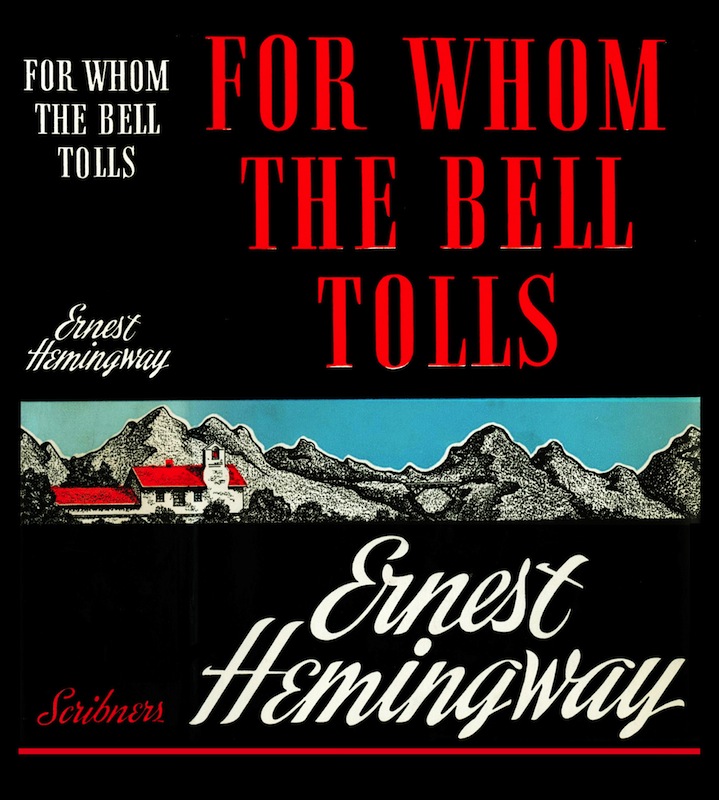
When Ernest Hemingway’s now-classic novel For Whom the Bell Tolls was released, exactly 75 years ago on Wednesday, the author’s fans had some cause to tamp down their expectations. Hemingway’s stock-in-trade–finely-detailed stories of drinking and sporting in foreign lands–struck some as ill-suited to a period of great suffering.
“There was a feeling abroad that Hemingway was a little too obsessed with sex, a little too obsessed with blood for the sake of blood, killing for the sake of killing. Even his admirers wondered where he was going to find another experience big enough to make him write another A Farewell to Arms,” TIME noted in its review of For Whom the Bell Tolls. “If ever he did, they thought, he would produce another great book. They misunderstood Hemingway’s apparent obsession with killing, forgot that the dominant experience of this age is violent death.”
But, TIME’s critic declared, any doubts about his abilities had been misplaced:
In 1936 Hemingway found the great experience—The Spanish Civil War. This week he published the great novel—For Whom the Bell Tolls. He took the title from a passage by Preacher Poet John Donne: “No man is an iland, intire of it selfe; every man is a peece of the Continent, a part of the maine; if a clod bee washed away by the Sea, Europe is the lesse, as well as if a Promontorie were, . . . any mans death diminishes me, because I am involved in Mankinde; And therefore never send to know for whom the bell tolls; It tolls for thee.”
For Whom the Bell Tolls is 1) a great Hemingway love story; 2) a tense story of adventure in war; 3) a grave and sombre tragedy of Spanish peasants fighting for their lives. But above all it is about death. The plot is simple, about a bridge over a deep gorge behind Franco’s lines. Robert Jordan, a young American International Brigader, is ordered to blow up the bridge. He must get help from the guerrillas who live in Franco’s territory. The bridge must be destroyed at the precise moment when a big Loyalist offensive begins. If the bridge can be destroyed, the offensive may succeed. If the offensive succeeds, the struggle of the human race against fascism may be advanced a step. The courage of the Spanish peasants is linked to the fate of all mankind.
Read the full review, here in the TIME Vault: Death in Spain
More Must-Reads from TIME
- Why Trump’s Message Worked on Latino Men
- What Trump’s Win Could Mean for Housing
- The 100 Must-Read Books of 2024
- Sleep Doctors Share the 1 Tip That’s Changed Their Lives
- Column: Let’s Bring Back Romance
- What It’s Like to Have Long COVID As a Kid
- FX’s Say Nothing Is the Must-Watch Political Thriller of 2024
- Merle Bombardieri Is Helping People Make the Baby Decision
Write to Lily Rothman at lily.rothman@time.com